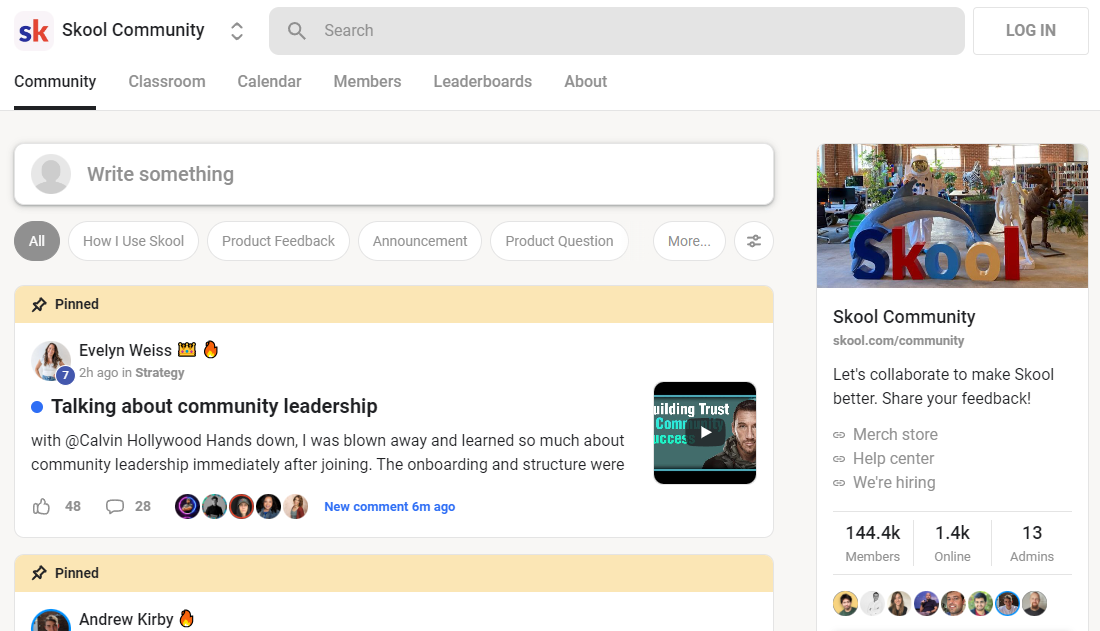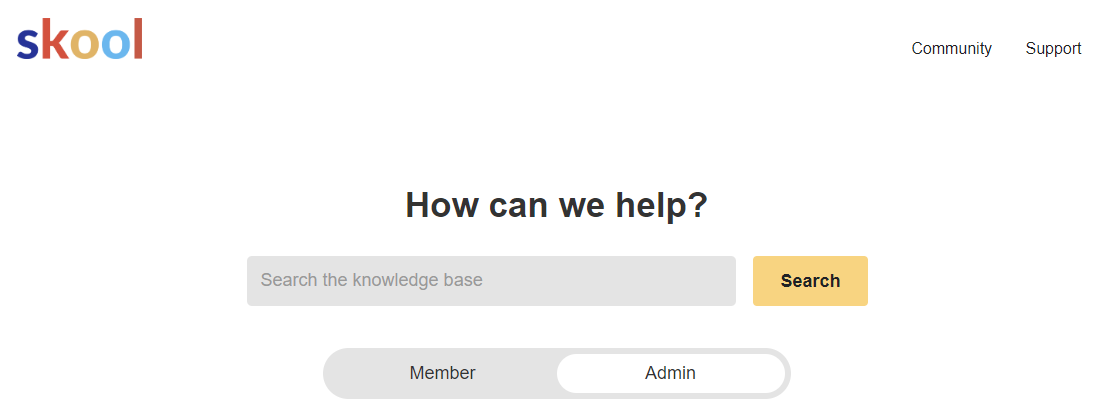Skool supplies best-in-class gamification attributes that improve interaction. For instance, participants can earn levels based upon their engagement, which open course content and other incentives that even more encourage them.
Previously, makers needed to utilize different devices for organizing courses, constructing communities and taking care of e-mail advertising and marketing. This produced a disjointed experience for both creators and their target markets.
Developing Courses
Skool has an easy, straightforward user interface and focuses on community structure and training course hosting over various other functions. It allows makers to create a vibrant neighborhood for their training courses and training programs by linking them with the right audience. This likewise helps them keep an eye on the wellness of their web content business with the help of a simple dashboard.

To begin, an individual can register for a free 14-day trial of Skool. After that, they can pay $99 a month for the platform to host a single neighborhood. There are nothing else rates options readily available for the moment. Skool additionally processes payment and pays makers weekly, however it does charge a 2.9% purchase cost.
Among the one-of-a-kind facets of Skool is that it can be utilized to produce interactive courses. These can include live webinars, team tasks and real-time conversations. These sorts of courses urge involvement and increase training course conclusion rates. Additionally, Skool’s gamification features help to motivate community involvement. For example, members can gain factors and unlock course web content when they get to specific levels in the neighborhood.
Individuals can additionally make use of the social eat Skool to upload updates and interact with others in the community. The feed appears like a Facebook group, however with a more controlled way of posting. This aids to prevent the sort of spam and misuse that occurs on other social platforms.
Managing Communities
Skool is a really basic system to use, for both members and admins. Its simplicity is just one of its major selling factors– when a person joins your community they won’t be confronted with a lot of options or features that can hinder their experience and perplex them.
The platform begins as a personal team by default, but you can quickly change this to open up your area to any individual that you want to be part of it. When you’ve done this you’ll see a social feed like you would on Facebook Groups or WhatsApp (but without all the fraud things and swearing).
You can additionally add a class tab to your community that you can utilize to share instructional web content with your members. This feature is especially valuable for communities that are focused on knowing or professional growth as it aids to create an instructional framework and makes it very easy for members to track their progression. On top of that, the platform has gamification elements that allow members to gain points by suching as posts or remarks. When they get to a particular level they can unlock resources, such as training courses, additionally driving interaction.
The other trendy point is that Skool has a mobile app, just like Mighty Networks or Slack, so members can stay up to date with your community and connect on the go. This is a fantastic means to motivate and involve your participants and to help them get assistance from each other when they require it, rather than simply turning to you for responses.
Skool FAQ
Skool focuses on gamification, allowing users to make factors and badges for their contributions. This inspires members to engage with the neighborhood and add to discussions. Subsequently, this helps them level up and unlock perks like video clips and other material. Admins can additionally set training courses to be opened at details levels to further drive engagement.

The Skool interface is spick-and-span and instinctive. Its highlights include the Community tab, which looks just like a Facebook team feed. Right here, customers can upload remarks and message in addition to upload photos, links and video clips. Participants can likewise check out each others accounts and connect with them. Moreover, customers can develop exclusive teams in the neighborhood to review certain subjects.
One more feature of Skool is the Classroom tab, which resembles a YouTube livestream or Zoom conference. Utilizing this, administrators can host trainings and webinars for their trainees. They can additionally add occasions in the schedule to stay upgraded on upcoming events and Skool FAQ.
Nonetheless, some elements of Skool could utilize enhancement. As an example, the platform isn’t adaptable when it involves monetization as individuals can not supply several pricing rates for their programs and community subscriptions. In addition, the tool does not have an e-mail advertising function, which might be a bargain breaker for some training course designers. It also does not have indigenous video hosting, indicating that customers need to make use of exterior systems like YouTube, Loom and Vimeo for their video clips.
Adding Content
The process for adding content and connecting with participants on Skool is simple and uncomplicated. Admins can produce blog posts with message, GIFs, videos and surveys. They can also add event schedules to alert area participants of upcoming team Zoom calls or live streams. Additionally, they can use Skool’s e-mail broadcast feature to send out a message to the entire neighborhood with a solitary click. This removes the demand for tagging and list division, which can be cumbersome.
Additionally, Skool’s gamification features can enhance interaction and user retention. It encourages participants to interact with the web content often by rewarding them with various perks. These consist of opening course content, gaining factors and gaining a spot on neighborhood leaderboards.
While Skool supplies a host of helpful functions for producing and delivering online courses, it’s except every person. The platform is best for coaches, consultants and other information entrepreneurs. However, the price can be a barrier for some people looking to monetize their online material.
In addition, the lack of standard rates and a short free trial might be a deterrent for lots of. In addition, the platform’s laser-focus on eLearning can make it much less desirable for people that want to sell various other electronic products. However, in spite of these disadvantages, Skool FAQ is still a viable option for any person looking to create and monetize online training courses.